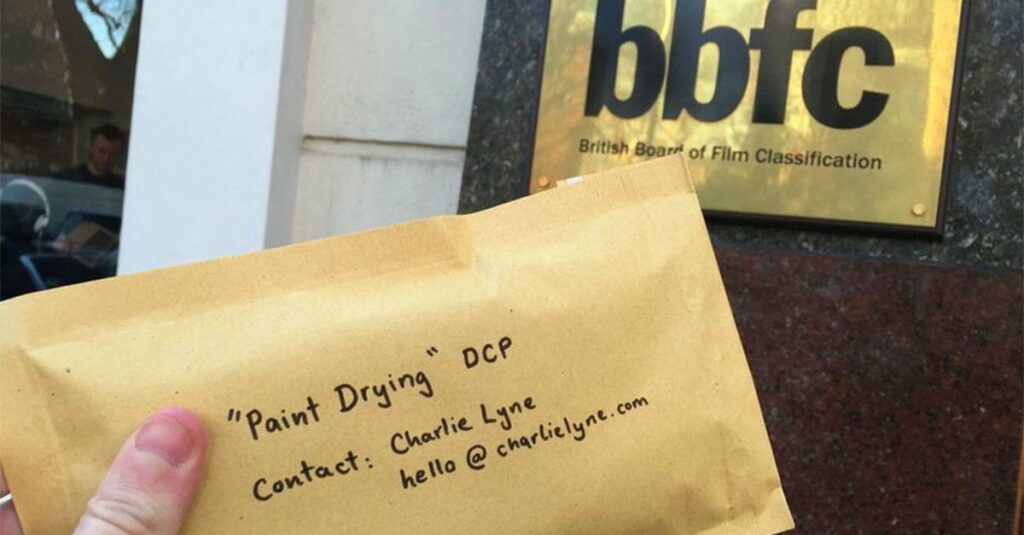The British Board of Film Classification, known as BBFC, charges a standard rate for movies by the minute, regardless if they are big studios or indie filmmakers.
A director created a ten-hour film about paint drying on a wall that lasts ten hours and seven minutes. Charlie Lyne made the film in order to mock the British Board of Film Classification.
What is the British Board of Film Classification (BBFC)?
The British Board of Film Classification, or the BBFC, was initially called the British Board of Film Censors. It was established in 1912 to standardize local authorities’ censorship standards. BBFC’s main goal was to provide consistent censorship and set the main criteria for films coming into the country. (Source: BBFC)
The BBFC is the initial body to review and rate movies; however, the end decision remains with local councils. But since 1920, local councils have generally accepted the BBFC’s recommendations.
The establishment expanded its reach in the eighties when Parliament granted the Video Recordings Act in 1984. This was also when the British Board of Film Censorship’s name was changed to the British Board of Film Classification.
In 2008, the BBFC entered the online space, recommending classifications of video-on-demand services. Then in 2017, it joined the mobile space under the Digital Economy Act. Their classifications are usually not mandatory, leaving the discretion to the video-on-demand services. (Source: BBFC)
Film Classification and Costs in the UK
The BBFC Classification is the practice of issuing age ratings and content guidance to films and other audiovisual content to assist children and families in choosing what’s good for them and avoiding what’s not. (Source: BBFC)
In the vast majority of circumstances, the age rating suggestion for a film’s theatrical release is given the green light by a Compliance Manager. However, the approval is only provided after two compliance officers review the films for cinema release.
For DVDs and VoD movies and series, only one compliance officer is required. However, recommendations of other officers and the compliance manager are noted for the classification.
Foul language, unlawful behavior, discrimination, drug use, horror, nudity, sex, and violence are looked into for the classification. The compliance officer also looks at the context, tone, and impact that a message might have. This includes how the audience will feel and the format in which the content is released, such as DVDs, Blu-rays, and VoD video being watched at home, which brings a higher risk of underage watching. (Source: BBFC)
As with any organization, charges for their services are present. The BBFC charges by the minute, on an average of 11 cents per minute. (Source: Screen Daily)
Charlie Lyne and the ‘Paint Drying’
The cost of BBFC classification has brought young director and filmmaker Charlie Lyne to create a ‘documentary’ in the hopes of getting his opinions about the BBFC charging system to the public. (Source: Screen Daily)
Lyne asked that the BBFC charges per minute for each movie they rate, whether the film was done by a big studio or by independent filmmakers, to give some insight into the BBFC’s pricing policy.
Lyne’s idea was simple – to create a 10-hour documentary of a wall painted in white and wait for it to dry. The movie lasted 607 minutes, or a total of 10 hours of a white wall freshly painted. It is watching a painted wall dry out. Lyne was charged a total of £5,286.16 for it to be classified by the BBFC. (Source: Screen Daily)
